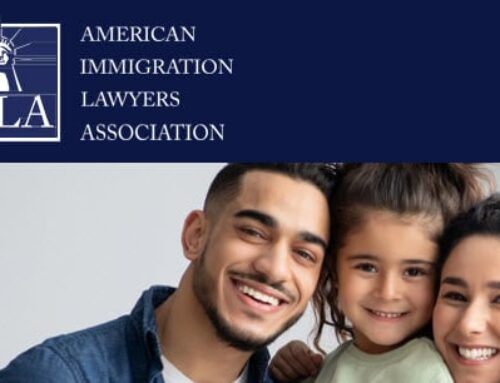COVID-19 Restrictions Return for Travelers from China, Hong Kong, and Macau
Effective Jan. 5, 2023, COVID-19 travel restrictions are back for those traveling to the United States from China, Hong Kong, or Macau. Individuals will have to show evidence of a negative COVID-19 test or of recovery from COVID-19 upon entry.
Who Does this Apply To?
Restrictions will apply to everyone over the age of two boarding a flight from China, Hong Kong, or Macau to a destination in the United States. The restrictions will also apply to those who transit through third countries (South Korea, Toronto and Vancouver) to the United States or those who are connecting in the United States to further destinations who have been in China, Macau or Hong Kong. These individuals must show evidence of a negative COVID-19 viral test taken no more than two days prior to departure. This applies across the board, regardless of the individual’s nationality, immigration status, or vaccination status. The alternative is to provide proof of recovery from COVID-19 more than 10 days and fewer than 90 days of departure.
Accepted COVID Test
The COVID-19 test must be a PCR test or a monitored self-test authorized by the FDA.
There will be limited exceptions for emergency travel to protect someone’s life or health from serious threat or danger.
Individuals travelling through South Korea, Toronto, or Vancouver to the United States will need to show evidence of a negative COVID-19 test if they have been in China within 10 days of boarding.
Other countries are also issuing similar regulations. To date those include Australia, Canada, France, Israel, Italy, Japan, Malaysia, Morocco, Qatar, Singapore, South Korea, Spain, Thailand, and the United Kingdom.
The Chinese government criticizes that these new restrictions lack a scientific basis, coming just as China has opened its borders to visitors. The first ban on travel from China due to COVID-19 was imposed by the Trump Administration in Feb. 2020 and was lifted in Nov. 2021 by the Biden Administration.
U.S. Continues to Require Proof of COVID-19 Vaccination for Foreign National Air Passengers
While many COVID-19 travel restrictions have been removed, apart from the new restrictions above, all nonimmigrant foreign nationals continue to be required to present proof of being fully vaccinated against COVID-19 in order to board an international flight to the United States.
A summary of the COVID-19 vaccination requirements can be found below.
Someone is “fully vaccinated”:
- 14 days after receiving one dose of an approved single dose vaccine;
- 14 days after receiving the second dose in a two-dose series vaccine; or
- 14 days after receiving two doses of any approved “mix and match” combination administered at least 17 days apart.
The CDC has a list of approved vaccines. Boosters are not required.
Acceptable proof include the following:
- Vaccination certificate with QR code or digital pass via Smartphone application with QR code
- Printout of COVID-19 vaccination record or certificate issued at a national or subnational level by an authorized vaccine provider
- Digital photos of vaccination card or record, downloaded vaccination record or vaccination certification from an official source, or a mobile phone application without a QR code
All proof must have personal identifiers (full name plus at least one other identifier such as date of birth or passport number) that match passport or other travel documents. Airlines will determine is when a translation is required.
The following are excepted from the requirement to provide proof of vaccination:
- Those on official government business or diplomatic travel
- Children under 18 years of age
- Participants in certain COVID-19 vaccine trials
- Persons with medical contraindications to vaccination
- Persons issued humanitarian or emergency exception
- Persons with valid nonimmigrant visas(except B-1/B-2) who are from countries with limited COVID-19 vaccine availability
- Members of U.S. Armed Forces and their spouses and children (under 18 years old)
- Sea crew members on C-1 or D nonimmigrant visas
- Persons whose entry is in the U.S. national interest as determined by the Secretary of State, Transportation, or Homeland Security (or their designees)
Individuals who are excepted may have to agree to following certain protocols upon entry into the United States.
In addition to the above COVID-19 travel restrictions, when traveling to the United States, all nonimmigrants should carry a passport valid for at least six months and a valid U.S. visa stamp or ESTA approval (if eligible).
This alert is for informational purposes only. If you have any questions, please contact us via email at info@poonahimmigrationlaw.com for further information.




